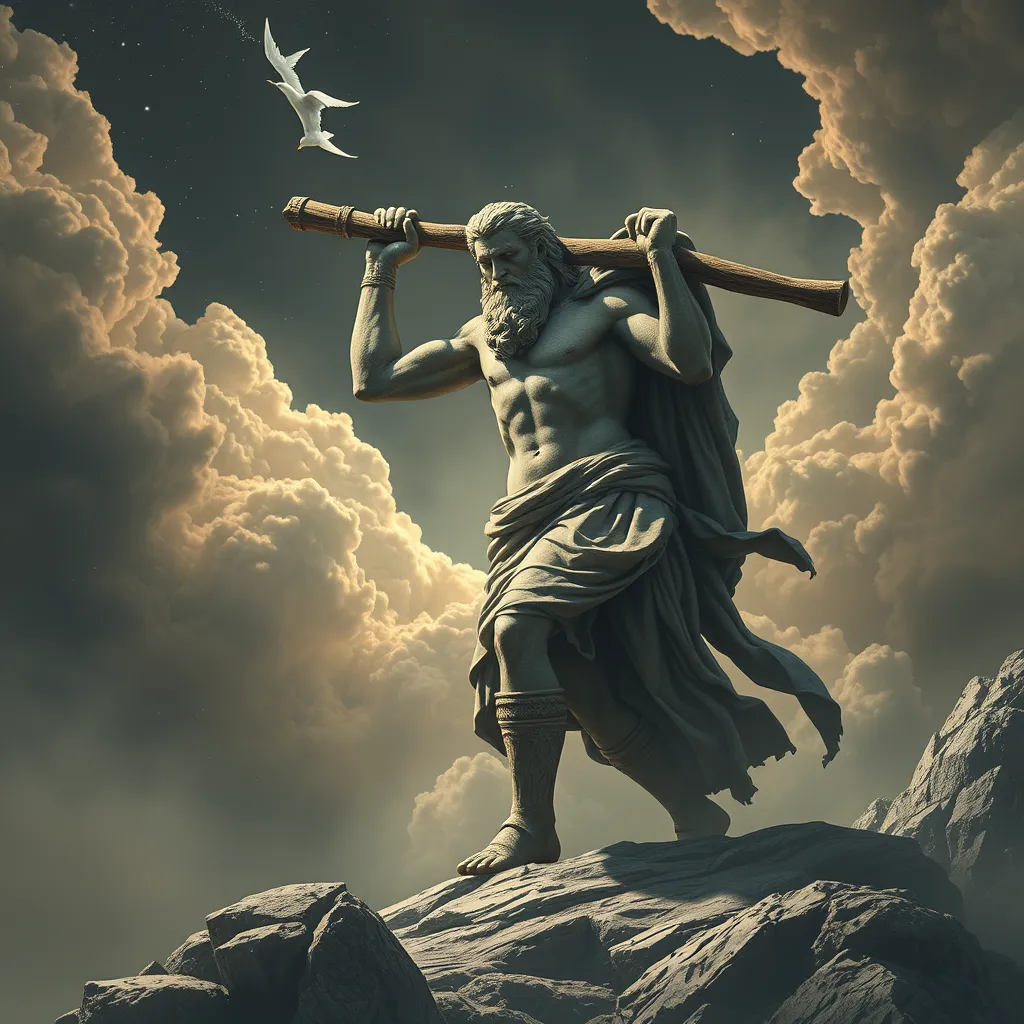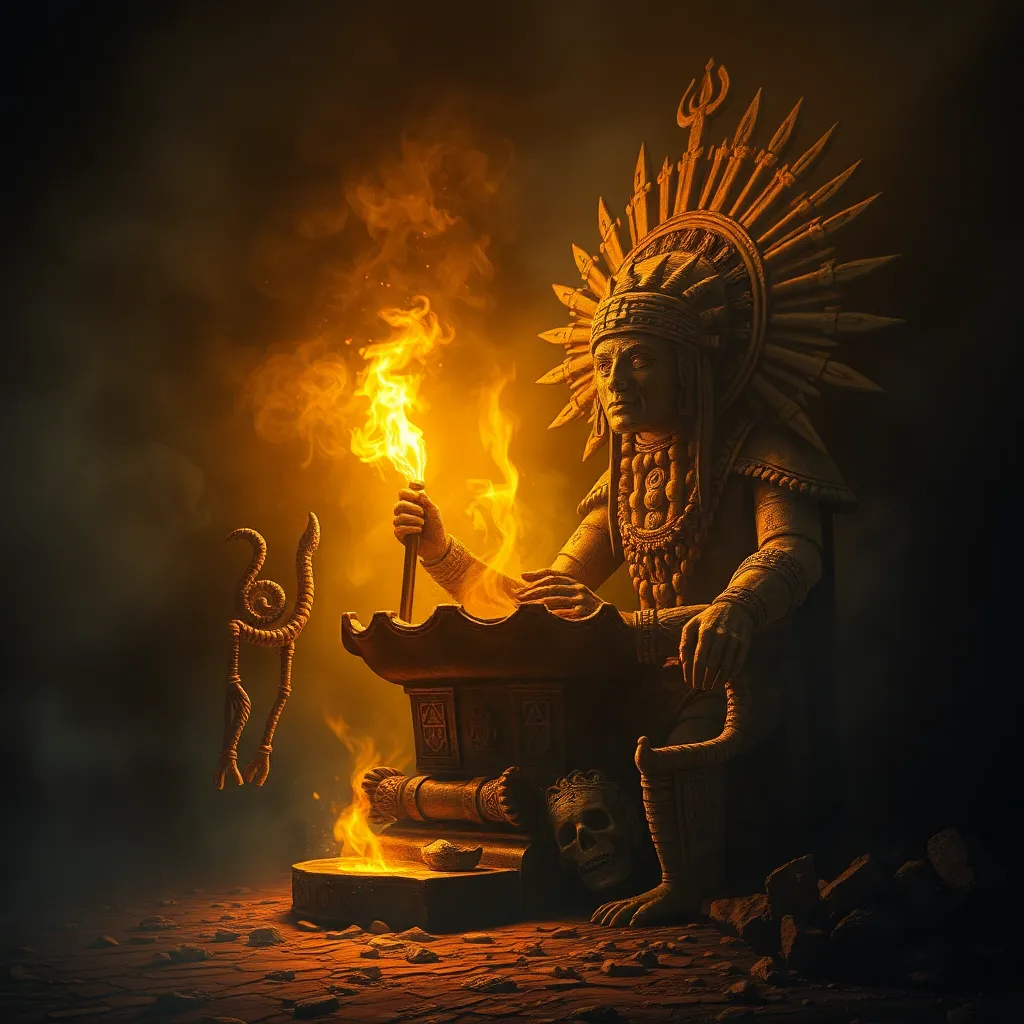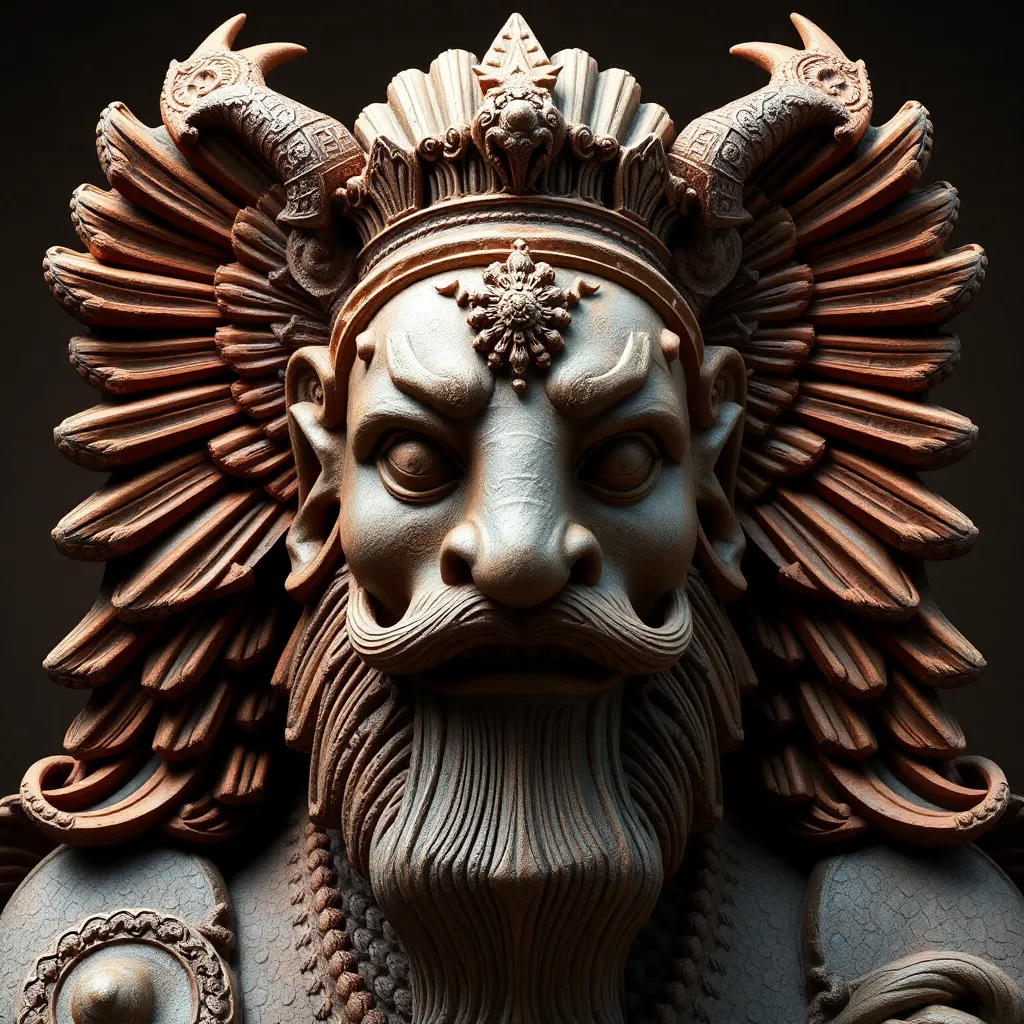The Story of Atlas: The Titan Condemned to Bear the Heavens
I. Introduction
Greek mythology is a rich tapestry of stories that explore the complexities of human nature and the divine. It serves not only as a reflection of ancient beliefs but also as a foundation for understanding modern literature, art, and philosophy. Among the myriad figures in Greek mythology, Atlas stands out as a profound symbol of strength and burden, known primarily for his eternal punishment of holding up the heavens.
This article aims to delve into the story of Atlas, examining his origins, the circumstances of his punishment, and the enduring symbolism he represents. Through this exploration, we will uncover the lessons that can be drawn from his tale, which resonate even in contemporary times.
II. The Origins of Atlas
A. Family background and lineage
Atlas was one of the Titans, a race of powerful deities that predated the Olympian gods. He was the son of the Titan Iapetus and the Oceanid Clymene, and his siblings included Prometheus, Epimetheus, and Menoetius. This lineage placed Atlas in a significant position within the Greek pantheon, representing a connection between the primordial beings of the universe and the later Olympian deities.
B. The Titans and their role in the Greek pantheon
The Titans were known for their immense power and were often depicted as the embodiments of various natural forces. They ruled during the Golden Age of Greek mythology, a time characterized by peace and prosperity. However, their reign came to an end during the Titanomachy, a ten-year war between the Titans and the Olympians, led by Zeus.
C. Atlas’s role in the Titanomachy
Atlas fought valiantly against the Olympian gods during the Titanomachy. Ultimately, the Titans were defeated, and Zeus established his rule over Mount Olympus. As a consequence of their rebellion, many Titans were punished, with Atlas receiving a particularly harsh sentence.
III. The Punishment of Atlas
A. The circumstances leading to Atlas’s punishment
Following the defeat of the Titans, Zeus sought to impose severe punishments on those who had opposed him. Atlas’s defiance during the Titanomachy did not go unnoticed, and his fate was sealed when Zeus decided to make an example of him.
B. Zeus’s decree: the weight of the heavens
Zeus condemned Atlas to an eternity of bearing the weight of the heavens on his shoulders, a punishment that symbolized not just physical burden but also the weight of responsibility. This image of Atlas straining under the celestial sphere has become iconic in art and literature.
C. Interpretation of Atlas’s punishment in myth
The punishment of Atlas can be viewed through various lenses. Some interpretations suggest that it reflects the idea of eternal struggle and sacrifice, highlighting the consequences of ambition and rebellion against divine authority. Others see it as a metaphor for the burdens one must carry in life, making Atlas a relatable figure for many.
IV. Atlas in Ancient Literature
A. References to Atlas in Homer’s works
Atlas is mentioned in both the “Iliad” and the “Odyssey,” where he is described as a figure who knows the depths of the ocean and the stars above. In the “Odyssey,” he is cited as the father of the nymph Calypso, adding layers to his character and influence within the mythological landscape.
B. Depictions by later poets and playwrights
Later poets, such as Hesiod and Pindar, expanded on Atlas’s narrative, often portraying him as a wise and knowledgeable figure, further cementing his role as a titan of strength and endurance. In plays, he frequently symbolizes the struggle of the human condition.
C. The evolution of Atlas’s character through different texts
Over time, the character of Atlas has evolved, from a simple Titan condemned to bear the heavens to a multifaceted figure that represents resilience, wisdom, and the burden of knowledge. This evolution showcases the adaptability of mythological figures in reflecting societal values and beliefs.
V. Symbolism of Atlas
A. Representation of strength and endurance
Atlas embodies physical strength and the endurance of spirit. His ability to bear the heavens symbolizes the human capability to withstand great challenges and hardships.
B. The theme of burden and responsibility
Atlas’s punishment speaks to the theme of burden. It reflects the responsibilities individuals carry in their lives, whether they are family obligations, societal expectations, or personal challenges. This theme resonates deeply with many people.
C. Atlas as a metaphor for human struggle and perseverance
Atlas serves as a powerful metaphor for human struggle. His story encourages individuals to persevere through their burdens, suggesting that strength is not merely physical but also mental and emotional.
VI. Atlas in Art and Culture
A. Visual representations of Atlas in ancient and modern art
Throughout history, Atlas has been depicted in various forms of art, from ancient Greek pottery to Renaissance paintings. Artists have often portrayed him as a muscular figure, straining under the weight of the celestial globe, emphasizing both his physical might and the enormity of his burden.
B. Atlas’s influence in literature, film, and popular culture
Atlas has also made appearances in modern literature and films, often serving as a symbol of strength in the face of adversity. His character has inspired numerous adaptations, ranging from children’s books to blockbuster movies.
C. The enduring legacy of the Atlas figure in contemporary society
The image of Atlas continues to resonate today. His story serves as a reminder of the struggles individuals face and the importance of resilience in overcoming life’s challenges. The term “Atlas” has even been used in a variety of contexts, from geography (Atlas of maps) to psychology (the weight of expectations).
VII. Lessons from the Story of Atlas
A. Philosophical interpretations of Atlas’s story
The story of Atlas invites various philosophical interpretations, including discussions on fate, free will, and the nature of suffering. It raises questions about the balance of power and the responsibilities we carry as individuals within society.
B. Insights on resilience and facing challenges
Atlas’s tale imparts valuable insights into resilience. It encourages individuals to confront their challenges head-on and to find strength in adversity. Just as Atlas bore the heavens, we too can bear our burdens with grace.
C. The relevance of Atlas’s tale in today’s world
In a world where individuals often feel overwhelmed by their responsibilities, the story of Atlas remains profoundly relevant. It serves as a reminder that while burdens may be heavy, perseverance and strength can lead to triumph.
VIII. Conclusion
In conclusion, Atlas is a significant figure in Greek mythology, representing strength, endurance, and the weight of responsibility. His story has evolved over time and continues to resonate across cultures. As we reflect on the life of Atlas, we are reminded of the importance of resilience and the shared human experience of facing challenges.
Ultimately, Atlas’s tale encourages us to consider our own burdens and how we can find strength within ourselves to carry on. His enduring legacy invites reflection on our capacity for endurance and the power of the human spirit.



